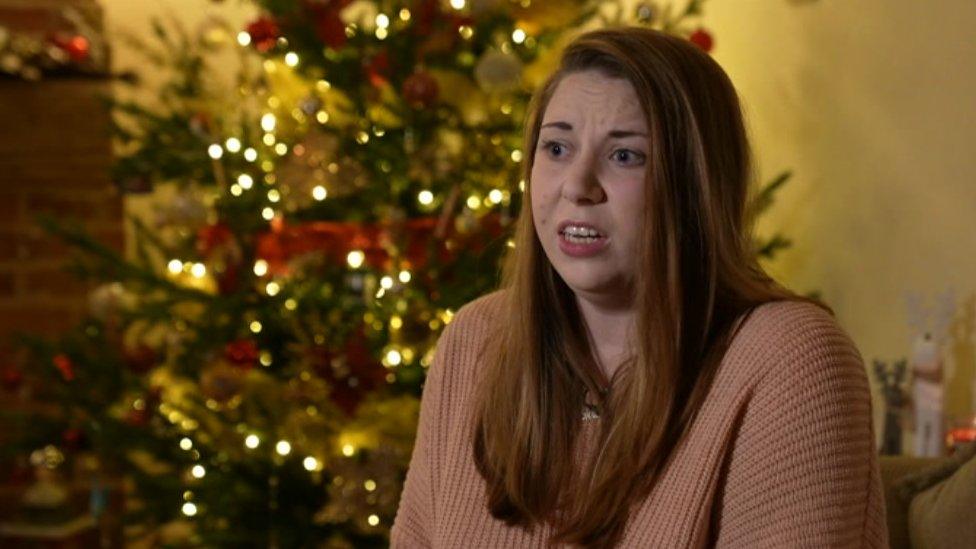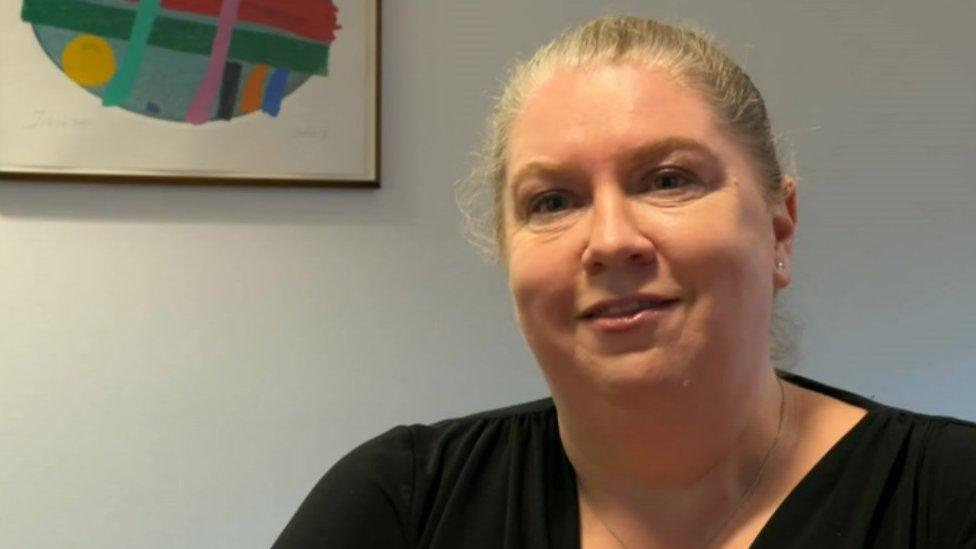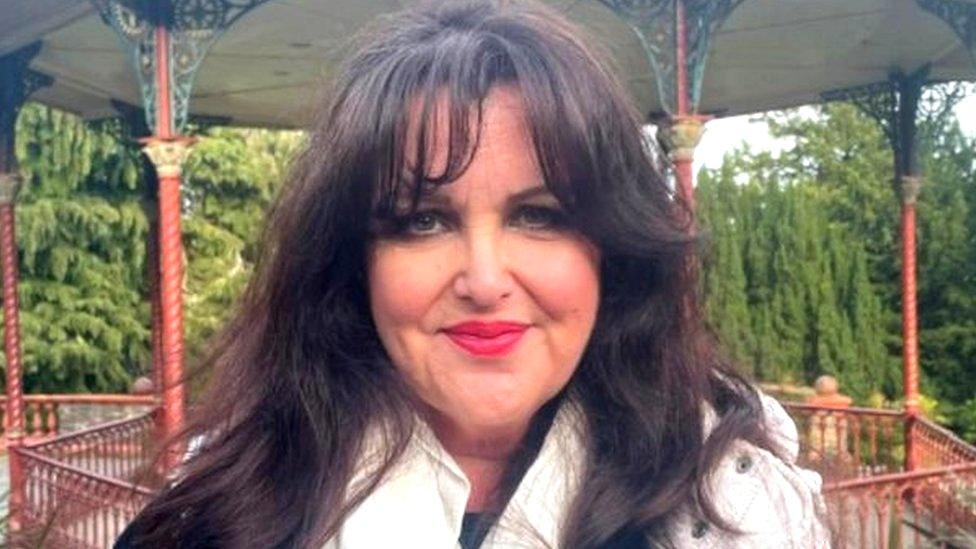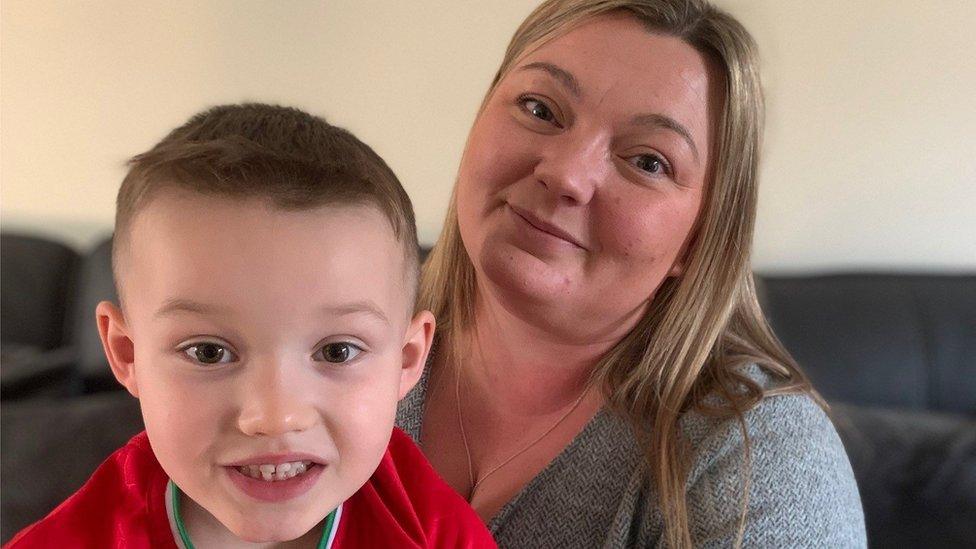Coleshill mum raising awareness of rare heart condition
- Published

Paige Wilson said she thought she was going to die from a rare heart condition days after giving birth to her son
A woman who nearly died from a rare heart condition says she wants to raise awareness of it among both parents and medics.
Paige Wilson, from Coleshill, Warwickshire, gave birth to Ollie in 2019 but fell ill four days later.
At first diagnosed with sepsis, doctors also found she had peripartum cardiomyopathy (PPCM) and at one stage called her family to say goodbye.
"I couldn't breathe and I did think I was going to die," Ms Wilson said.
The symptoms came on days after her healthy pregnancy and birth at the George Eliot Hospital, Nuneaton.
"I started to feel really unwell. I just felt like I couldn't get out of bed, there was something that wasn't quite right," she said.
PPCM is a condition which leads to changes in the heart that can cause it to become enlarged and can lead to heart failure.
Cardiomyopathy UK said it occurred in the last part of pregnancy or the first few months after.
In the most severe cases, it can be fatal or require a heart transplant.

Cardiologist Dr Dawn Adamson said the NHS was trying to raise awareness of rare maternity conditions like peripartum cardiomyopathy
Ms Wilson made a full recovery, but said she felt guilty about missing the first few weeks of her son's life.
"I felt like I didn't bond with Ollie, because I felt like this awful mum because I'd missed practically his first couple of weeks," she said.
Her family, the NHS, support groups and her son all helped in her recovery, she added.
The NHS said more was being done to help staff spot the signs of PPCM and other rare maternity conditions.
Raising awareness of the issues is key as they may not appear frequently, said Dr Dawn Adamson, consultant cardiologist at University Hospital Coventry and Warwickshire.
"We're doing a lot of work to train the future generations who are looking after the maternity services - the obstetricians, the cardiologists, GPs, primary care - to try and be aware of all these different conditions," she said.

Follow BBC West Midlands on Facebook, external, Twitter, external and Instagram, external. Send your story ideas to: newsonline.westmidlands@bbc.co.uk, external
Related topics
- Published19 May 2022

- Published14 February 2022
